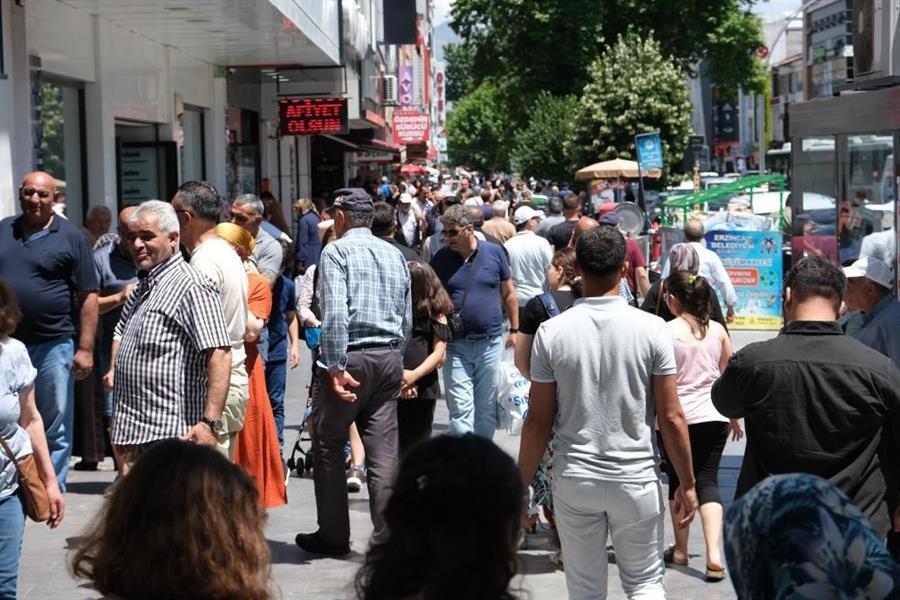
The Turkish Statistical Institute (TÜİK) unveiled the internal migration figures for the year 2022, revealing that a staggering 2.7 million citizens migrated between provinces within the country.
The annual migration rate, which has exhibited a fluctuating trajectory over the years, reached 3.27 percent in 2022, up from 3.18 percent during the 2007-2008 period.
Of the total migrants, 47.9 percent were men, while 52.1 percent were women, underlining a balanced gender distribution in this mass movement.
Istanbul emerged as the top recipient of internal migration, attracting a significant 385,294 individuals seeking new opportunities and lifestyles. Following suit, the capital Ankara ranked second with 189,104 migrants, while the country's third largest city İzmir secured the third spot, welcoming 132,426 newcomers.
Conversely, certain provinces experienced minimal inflows of migration. Ardahan, Bayburt and Kilis recorded the lowest immigration numbers, with 5,391, 7,031 and 8,008 migrants respectively. The provinces of Istanbul, Ankara and İzmir, on the other hand, registered the highest migration counts, welcoming 418,082, 161,912 and 107,312 migrants, respectively.
Highlighting the mobility trends by age group, the 20-24 category stood out as the most active demographic, with 643,998 individuals relocating. Among them, 42.5 percent were men, and 57.5 percent were women.
Educational pursuits emerged as a driving factor, as 257,676 migrants in this age range moved due to educational prospects. Moreover, 91,612 sought job opportunities, while 50,338 individuals cited improved housing and living conditions as motivating factors.
The migration patterns showcased a reliance on familial connections, as 591,790 people moved due to household member influence. Additionally, 526,008 individuals undertook migration for educational reasons, and 479,250 citizens sought better housing and living standards.
Both men and women displayed migration tendencies associated with household members. Specifically, 237,574 men and 354,216 women moved in tandem with their families.